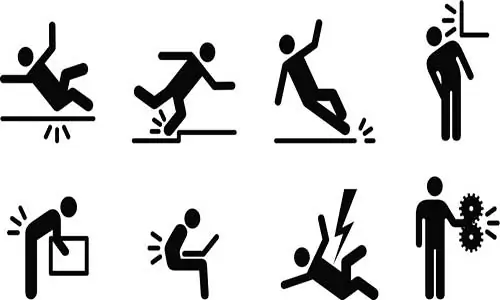WHAT TO KNOW IF YOU LOST YOUR JOB DUE TO A DISABILITY OR OTHER MEDICAL CONDITION
If you lost your job because of a medical condition, and you are considering calling a lawyer to sue your employer, you need to know your medical diagnosis that caused the employment problem. Second, you need copies of the notes you gave your employer that described your medical condition, period of incapacity, and probable return dates. If you do not have copies of these documents, you need a clear understanding of what you told your employer in terms of your medical condition and needs.
The failure to put your employer on notice that you have a long-term medical condition that may qualify as a disability may pigeon hold you into only being eligible for sick pay, FMLA, or maybe not having a legal case. Many failure to accommodate medical condition cases in employment law involve questions whether the medical condition is a disability, FMLA, or whether the employer got enough information that the condition was a disability, or anything that required the employer to allow the time off.
If you have a disability and you don't tell your employer about it, you don't give them a diagnosis, and you don't tell them it's a permanent condition, they don't have to get involved in an interactive process to work with you to determine what you need in order to keep your job. Reasonable accommodations are often based on the information discussed in the interactive process. If insufficient information was provided to the employer about the medical condition and its limitations, the employer may claim they had inadequate information to trigger a duty to accommodate.
Call (805) 200-0100 to determine if you can sue your employer due to your medical problem
REASONABLE ACCOMMODATIONS REQUIRE THE EMPLOYEE TO BE ABLE TO DO THE JOB WITH REASONABLE ACCOMMODATIONS
Some employees have serious medical problems that the law may accommodate. In these situations, there can be legal job protection based on the medical condition the employee suffers from. However, if it is not realistic for the employee to go back and work the job, ever the employer does not have a duty to reasonably accommodate the employee and hold the position open.
Many times, a workers compensation lawyer tells their client to check up with an employment lawyer. If the employee is no longer capable of working the job due to the work injury, it would be better for the workers compensation lawyer just to say that. In addition, applying for permanent disability is a conflict with saying I can work with reasonable accommodations.
If the employee has not worked in years, needs major accommodations to come back to the job, there might not be a duty on the employer's part to take the employee back.

Problems also occur if the employee comes back to work and the work makes the medical condition worse. In those cases, ADA reasonable accommodation concepts just do not apply. Additionally, employees have to be ready, willing and able to come back to work. Disability law with employment law requires the employer to be ready, willing and able to go back to work. If the employee is not, a case for lost wages cannot be legitimately filed. Lost wages cannot be claimed if the employee is out on disability, unable to work, and not looking for work. For these reasons it is important to coordinate an employee's civil case with their worker's compensation lawyer, if they have one.
WORKERS COMPENSATION CAN BE THE BEST SOLUTION
If the work injury prevents the employee from returning to their regular job, workers compensation might be the best remedy. Employees who had a serious work accident, and are now seriously limited in their ability to perform their jobs should not scoff at obtaining a workers compensation lawyer to get them permanent disability benefits under the workers compensation system. If the employee can't come back to the work for who knows how long, it's something that maybe needs to be in the worker's compensation system and not in the civil courts.

Besides workers compensation maybe being the best or only remedy, workers compensation lawyers are paid a smaller percent than lawyers who handle civil cases for disability discrimination and FMLA violations. However, employees who win disability and FMLA cases can require the employer to pay their attorney fees. There really is too much stigma with workers compensation. Would an employee rather get $80,000-$500,000 for their medical injury, or get a $5,000-$25,000 nuisance settlement for a disability discrimination case out of which they get very little money due to attorney fees and out of pocket costs?
If you call the Employment Lawyers Group at (805) 200-0100, we will guide you on the best path considering the nature of your medical issues and your job. Only a detailed conversation can determine if you have a disability that should have been accommodated, you qualify for FMLA, or you really need to pursue remedies in the workers compensation system.















